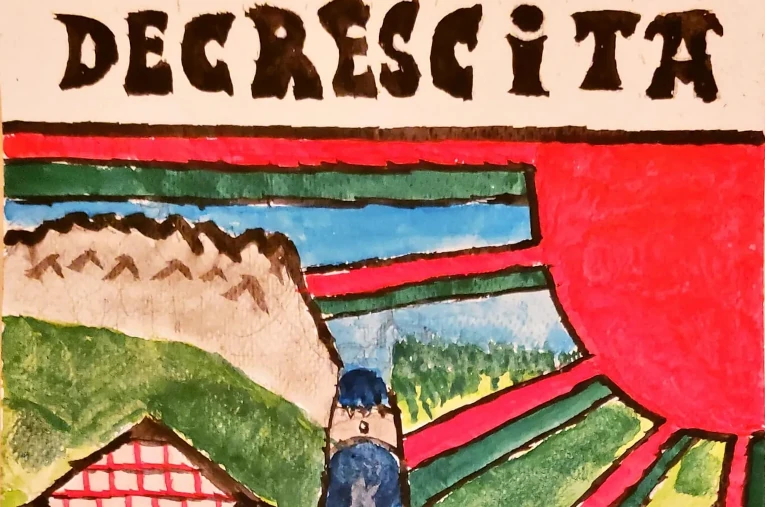The serenity, inclusivity, and gratification experienced within sociocracy has to be encountered first-hand to be fully appreciated.
It is truly enlightening to witness a democratic, participatory environment within an organization — knowing your opinion is not just heard, but valued. Moreover, there’s a profound sense of fulfilment in observing effective, collective decision-making unfold before your eyes, challenging skeptics who dismiss democratic workplaces as “idealistic” and “impractical.”
Nonetheless, the vast majority of us do not work in sociocratic organizations, and rosy personal accounts of inclusivity, at times, fail to properly deconstruct the mechanisms of sociocracy. What’s more, terms like ‘inclusivity’ appear to many, as they do to me, as tainted buzzwords, drawing flashbacks to corporate wellness packages comprised of generic gifts like £15 Amazon gift vouchers, bath salts, and desk cactuses.
So what’s the essence of sociocracy’s allure? Through concepts such as Organizational Justice, organizational commitment, and motive fulfillment, I believe we can all better understand why volunteers at the Post Growth Institute (PGI), myself included, continue to gladly dedicate time, energy, and creativity to our shared mission. Importantly, these concepts are intrinsically linked to the organization’s sustainability: that is, its ability to survive and thrive.
What is Organizational Justice?
Let’s set the stage by exploring the fundamental concept of Organizational Justice. Organizational Justice relates to employees’ perceptions of how fairly they are being treated by their organization. Colquitt helpfully delineates these perceptions into three distinct typologies:
- Distributive justice: how employees react to outcomes, and can be achieved when outcomes meet the expectations and desires of employees.
- Procedural justice: relates to reactions to the process which resulted in those outcomes, and can be fulfilled by involving employee voices in decision-making and avoiding biased processes.
- Interactional justice: dependent on reactions to employees’ treatment throughout the process. It encompasses two dimensions: interpersonal justice, which entails being treated well during interactions, and informational justice, which involves receiving the desired amount of information.

Original Basque degrowth artwork, by Nick Natrella
Sociocracy: the basics
Sociocracy comprises four essential components:
- Circles: These are semi-autonomous groups of individuals, each with its own objectives, governed by consent decision-making. Decisions are reached in circle meetings, akin to a parliamentary process.
- Consent decision-making: Unlike consensus decision-making, which requires unanimous agreement, consent decision-making proceeds if there are no voiced, reasonable objections to a proposal. Facilitators gather reactions to proposals in “rounds,” addressing objections and refining proposals to incorporate diverse perspectives. Through grounding exercises and ample time for reflection, time becomes a catalyst for learning.
- Double-linking: This involves at least two members from one circle also being members of the circle above, facilitating bidirectional information flow. These dynamic feedback loops enhance adaptability and responsiveness within the organization, embodying a circular management approach that distributes power and leadership throughout the organization.
- Election by consent: Rather than relying on majority votes, individuals are elected to roles or tasks based on the principle of consent, which may appear chaotic — but this approach actually fosters acceptance of authority, strengthens organizational commitment, minimizes friction, and enhances productivity.
Why sociocracy?
Sociocracy is justice-oriented and has a huge potential to benefit individuals, organizations, and society. (Yet it is by no means a panacea for all workplace difficulties — people are complex, situations are diverse, and unequal power relationships can persist, even when we actively work against them.)
From a business standpoint, the positive correlation between high levels of organizational justice and organizational commitment is a crucial factor for sustainability, particularly in sectors heavily reliant on volunteers, such as nonprofits. While this efficiency-driven argument is central, there are other compelling reasons that sociocracy should play a pivotal role in a post-growth, post-capitalist society.
First and foremost, at a time where one in ten workers experience mental health issues due to work-related stress, surely a more compassionate approach to work is in order. Sociocracy, by granting individuals responsibility and involvement in organizational direction, fosters a deeper sense of fulfillment. Sociocracy aligns well with other cutting-edge workplace developments — such as Kate Soper’s proposal to integrate craftivism’s creative process with green technologies’ efficiency and safety, fostering a workplace culture that prioritises mental health and allows individuals to pour their humanity into their work, transcending the mundane nine-to-five routine.
Sociocracy, rooted in its democratic ethos, presents a compelling opportunity to tackle the pressing challenges posed by the climate crisis. Marx’s insights, as elucidated by Kohei Saitō in Marx in the Anthropocene, underscore how the domination of capital over social metabolism — our collective management of natural resources — leads to ecological upheavals. This phenomenon, known as metabolic rift, is extensively explored by John Bellamy Foster.
It makes sense, then, that businesses grounded in human-centered, place-oriented approaches — such as regenerative enterprises — guided by the democratic tenets of sociocracy, offer a viable pathway to reclaiming control over our social metabolism. By reintegrating ecological sustainability into economic decision-making, these sociocratic enterprises hold the potential to steer society toward a more balanced and resilient future. This logic also holds for connecting businesses to their wider social purpose, thereby re-establishing the intrinsic purpose of work — to enhance human well-being — an idea underscored by Mark-Alec Mellor’s concept of the “irenic force.”
Organizational Justice and commitment
Here’s how the three types of organizational justice, as well as sociocracy and organizational commitment, relate to each other — specifically in the context of the PGI.
Distributive justice
An equitable distribution of resources and power, always under review through feedback loops, ensures high levels of distributive justice within sociocracy. Consequently, this drives affective commitment, that is, the employee’s emotional attachment and identification with the organisation. Complementing this ethos, the implementation of non-monetary incentives, as part of a comprehensive strategy for motive fulfilment, serves to reinforce this commitment. Motive fulfilment entails aligning organizational support with the intrinsic motivations of volunteers, fostering a mutually beneficial relationship.
For instance, as an Affiliate of the PGI, I have not only gained exposure for my work but also access to a vibrant community of like-minded individuals dedicated to the post-growth movement. Similarly, volunteers engaged in operational roles within the organization benefit from hands-on experience with sociocratic management practices. This experiential learning is invaluable, considering the nuanced understanding of sociocratic principles, tacit knowledge (as outlined by Nonaka & Takeuchi, in The Knowledge Creating Company), that is essential for effective implementation. Embracing an ethos of continual learning and adaptation, the organization exemplifies the notion of knowledge generation as an ongoing dialogue, integral to its iterative decision-making processes. Through such immersive experiences, individuals emerge equipped with the organizational and cultural competencies vital for promoting sociocracy within diverse organizational contexts.
Procedural justice
Sociocracy, through its democratic approach to decision-making and active involvement of employees in steering the organization’s course, ensures robust levels of procedural justice. In contrast, traditional bureaucratic structures often breed feelings of powerlessness and dehumanization among individuals. Research indicates a negative correlation between these sentiments and procedural justice, underscoring sociocracy’s potential to address these issues and enhance organizational outcomes, including reducing turnover intentions.
Interactional justice
The nurturing, deliberate pace of sociocracy fosters an environment where interactional justice reigns supreme. This environment, marked by continual experimentation and a focus on fostering relationships and individual growth over mere task completion, provides fertile ground for collaborative learning. Moreover, the organization actively works to mitigate normative commitment — commitment stemming from coercion — by allowing individuals the freedom to engage in meetings at their discretion, rather than mandating participation from all members. Such an inclusive approach encourages more authentic dialogue and fosters a culture of mutual respect. (It’s worth noting that this area remains relatively unexplored, and I invite curious readers to delve deeper into the intricacies of normative commitment within the context of sociocracy.)

Eucalyptus forest. Image by ekaterinvor via Pixabay
Sociocracy’s power to help organizations thrive
For many social enterprises, the pursuit of commercial activities can create tension between financial objectives and social missions, potentially eroding organizational legitimacy and diminishing affective commitment. This is particularly critical for organizations heavily reliant on volunteers. The PGI effectively navigates these challenges by aligning its organizational identity with its commercial endeavors, a strategic approach articulated by Lloyd & Woodside.
This alignment is exemplified by the Offers and Needs Market (OANM), which not only promotes community empowerment through post-capitalist exchange mechanisms but also adopts a pay-what-you-can model for facilitator training, thereby avoiding the exclusion of communities based on financial constraints. The approach strongly resonates with the PGI’s core value of ‘social and global justice,’ which underscores the organization’s commitment to ensuring equitable access to participation in light of prevailing inequalities.
Moreover, sociocracy plays a central role in this strategy by providing consulting services to purpose-driven individuals and organizations, facilitating the adoption of sociocratic practices. By constantly refining and enhancing the internal dynamics of sociocracy and promoting organizational justice within, the PGI effectuates positive change elsewhere.
The interconnected “zoo” of life
Sociocracy’s appeal lies in its promotion of fairness, inclusivity, and purpose within organizations, cultivating a collaborative and committed environment by fostering distributive, procedural, and interactional justice. Beyond organizational dynamics, sociocracy is also a key ingredient for addressing societal challenges like mental health and the climate crisis, offering a pathway to sustainability.
Within the PGI, sociocracy drives organizational justice and, in turn, commitment. Meanwhile, strategies such as motive fulfilment and aligning commercial activities with social missions complement sociocracy’s success, combining to create a promising approach to organizational sustainability and societal well-being.
When classifying the PGI, the organization closely aligns with Defourny’s model of the Emergence of Social Enterprise in Europe. This model emphasises principles of democratic governance, limited profit distribution, and a steadfast commitment to a social purpose. For me, this wonderful metaphor of the eucalyptus tree perfectly illustrates how it all fits together:
- The eucalyptus tree, emblematic of adaptability and resilience, thrives across diverse landscapes, displaying resistance to pests, diseases, and rebounding swiftly from disturbances like wildfires. These qualities resonate deeply with sociocracy, which embraces a nimble, trial-and-error approach to its evolution, flourishing despite challenging business and policy environments. In the realm of post-growth design, adaptability and resilience are indispensable traits.
- In our metaphor, the tree’s branches symbolize the multitude of projects, collaborations, and initiatives undertaken by the organization — such as the Offers and Needs Market, consultancy, and Fellowship — while its leaves represent the tangible outcomes: robust partnerships, impactful research, and enriching dialogues.
- The nutrient-rich soil and the beating sun represent the wider post-growth, post-capitalist landscape, be it writers, academics, activists, or regenerative entrepreneurs; all of which contribute to the organization through volunteering, collaboration, or exposure; fuelling its prosperity and success. The double-linking inherent to sociocracy is represented by the upward flow of nutrients from the roots, which passes upwards via the xylem vessels, combined with the downward flow of nutrients through the phloem, which carries sugars and nutrients from the leaves; nourishing all parts of the organism.
- In the interconnected “zoo” of life, the eucalyptus tree embodies symbiosis, reflecting the organization’s collaborative relationships with kindred entities. Moreover, like the tree providing shelter to smaller organisms, the organisation amplifies the voices of grassroots movements and local initiatives.
- Furthermore, the tree can act as shelter and home to smaller organisms, in the way the organisation strengthens the voice of grassroots movements and local initiatives.
- However, the eucalyptus monoculture serves as a cautionary tale, highlighting the dangers of homogeneity, even within community economies — a concept echoed by Gibson-Graham (2006). Therefore, the organization’s commitment to continuous learning and embracing the pluriverse is paramount to mitigating this risk.
- Lastly, eucalyptus is valued for its spiritual cleansing properties among various Australian indigenous populations; reflecting the spiritual, human nature of the organization’s work in which it seeks to avert feelings of dehumanization and organisational powerlessness inherent to bureaucratic management models.
Inspired by this article? Here are some suggested next steps:
- The best way to understand sociocracy is to experience it yourself. Find out more on Sociocracy for All (SoFA), sign up for their next live webinar, and follow the work of co-founder (and Affiliate Post Growth Fellow),Ted Rau
- Read Kate Soper’s Post Growth Living: For an Alternative Hedonism
- Check out The Irenaut to delve into the philosophy behind “the irenic force”.





